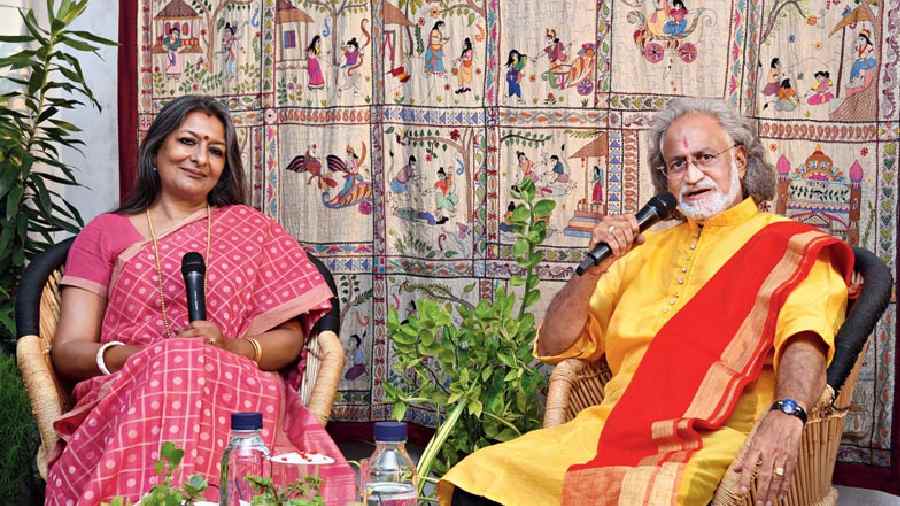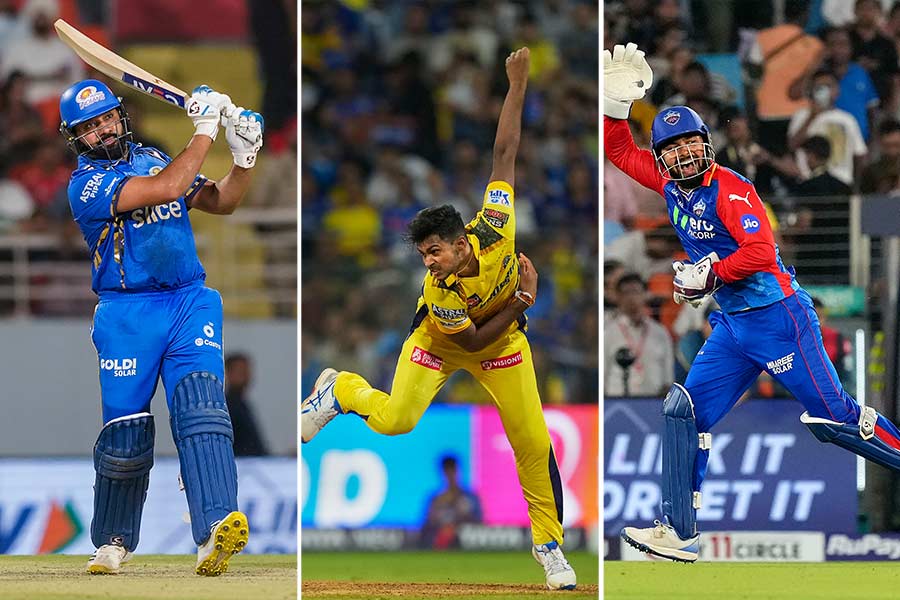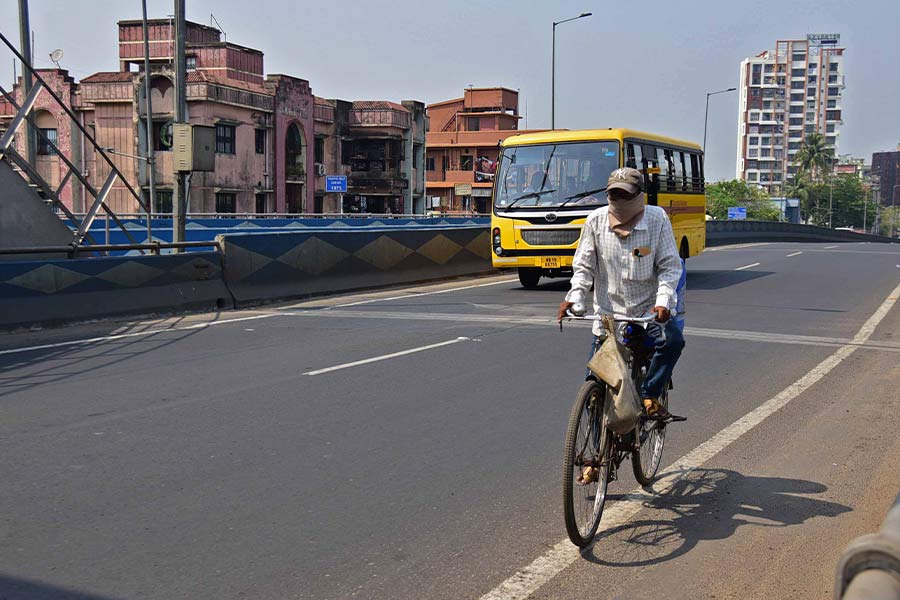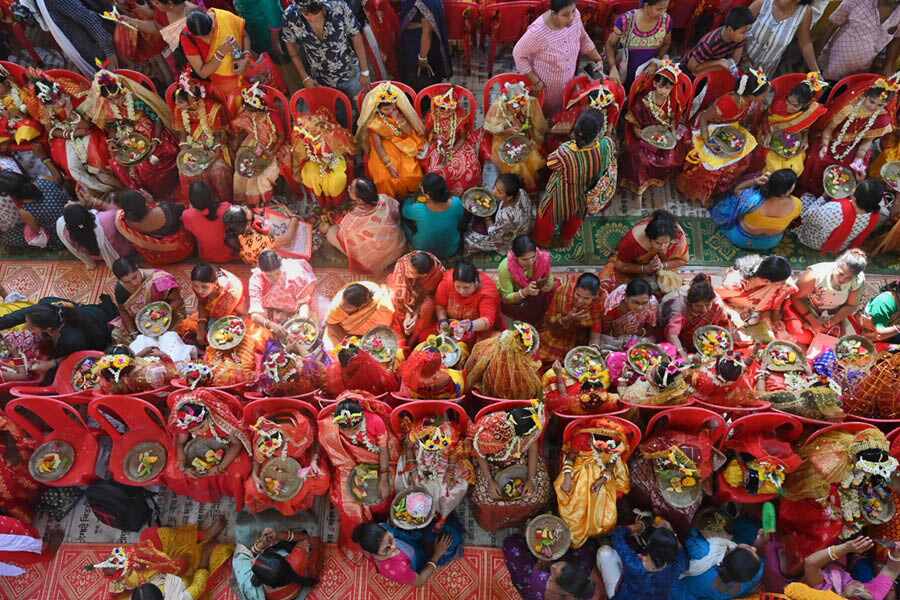Padma Bhushan and Grammy awardee Pandit Vishwa Mohan Bhatt was in Calcutta on June 19 for an evening of conversation organised by Prabha Khaitan Foundation, a Calcutta-based non-profit trust. The legendary musician was in conversation with Nandita Palchoudhuri, for the evening that was under the Choupal initiative of PKF. We bring you excerpts from the conversation…
On his choice to pursue music
In our Indian culture, we really care for traditions, and I was fortunate enough to be born into a family who have been dedicated to Indian classical music for the past 300 years. My origin is actually from Andhra (Pradesh), and my full name is Bhatt Vishwa Mohan Rao Tailan, with Tailan being the surname from Telangana. When Jaipur was growing around 1940s, the designers brought some of the intellectuals from our family to the place, where we were given a haveli in Chaura Rasta, named Bhatt Gali now, in which all these artistes used to live together. I was exposed to a joint family system with a rich artistic and musical culture, and started to learn by listening and observing.
Both my parents were musicians, practising and teaching music. They were very strong people, with my mother learning music from the best singer in Jaipur despite her being Muslim, while my father wholeheartedly supported her despite the orthodox society frowning upon women learning music. Fun fact, I never went to school too, all my education was done privately. I was very lucky that my parents supported me in whatever I wanted to do and never forced me to do anything. In fact, my mom had recognised my spark and prophesied that I’ll carry the art forward and do something big in life. When I became a parent, I also did the same thing with my sons and never forced them to do anything.
On all the feathers in his cap
Awards are important but I personally have never worked for awards. Till the time you don’t complete your sadhana, you can achieve nothing, especially in a field like this where discipline and practice are most important. Once you know what you want to pursue, you have to know the smallest of nuances about the subject. It is the same for music. The mixture and combination of ras and bhaav is what makes classical music.
What gives me the most satisfaction is the fact that I have listened to something good, learnt something good and had good gurus, parents and family, and the fact that I have had the opportunity to listen to all the maestros of Indian classical music. Despite there being no phones and TVs while I was growing up, we had a radio and later a transistor, on which I used to listen to classical music all the time. I used to observe how the same Yaman raag for example has been played differently by all the maestros such as Bhimsen ji (Joshi) and (Pt. Mallikarjun) Mansur ji. I don’t know about other matters but in this matter I was very good and determined. I could listen and tell all th
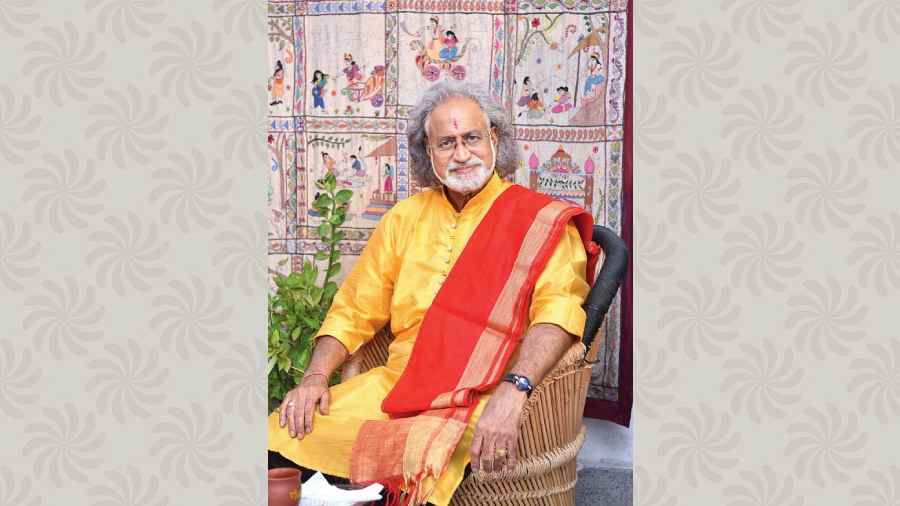
On the evolution of Mohan Veena
There was a turning point when I was 14-15 years old. (sheepishly). There was a girl who had come from Germany (the audience breaks into laughter) who played the guitar very well and had come to learn Indian music from my father. I liked both the girl and the instrument. To impress her, I thought of Indian-ising the instrument. When she was leaving the country, I bought the guitar from her for Rs 55. That was my turning point, since I thought that the instrument has a very good sound and is very close to the veena. Brij Bhushan ji made some changes in the instrument and I made some more. For example, while he made it to seven strings, I increased it to 20 to incorporate the tarav or the sympathetic strings which vibrate without striking them. If the main string is in the same frequency to the sympathetic one, it vibrates automatically. This is based on basic science. When it vibrates, it makes the sound more sonorized and helps in echo.
I also made a different style to hold the instrument. For a long time, this instrument was acoustic, which caused the problem of whistling while performing on stage. To avoid that, I researched and experimented to finally put a pickup on the instrument. Now the sound is under my control and not to depend on the sound person. If you give me the worst sound system in the world, I’ll make it the best. Controlling your own sound was something new to Indian classical music.
On the birth of fusion music
Firstly, I believe no music is bad as long as it is in a beat and tune, be it any genre of music. There is a purity in every music form. When it comes to fusion, some orthodox people did raise their eyebrows on incorporating fusion in classical music. It was like a revolution for Indian classical music. When my guru Pandit Ravi Shankar started doing this form of music, the perception of the orthodox people started to change. When guruji played with Yehudi Menuhin, he didn’t play Western music on sitar; instead, it was Menuhin who played Indian music on his violin. The westerners were given staff notations and they played the piece from there.
On the increasing crop of reality tv
I really like these kind of talent shows. Many of the kids are really talented. The only thing is that they go into overdrive with the emotions to make cash. I believe that your economic standing shouldn’t affect the music you do. I am against showing poverty on a singing show since the talent should take center stage. The drama is too much. The performance lasts for three minutes, which is accompanied by drama for six minutes. I also believe there should be something for classical music in such shows. Without classical music there is no base for your singing to stand on. While I teach my students, I tell them to forget the lyrics and sing the song only in its sargam form.
On not indulging in solo music direction
There are two-three things here. Firstly, there should be a good offer. I played in Vishal Bhardwaj’s Dedh Ishqiya and also in films like Mimi and Saat Khoon Maaf. I always prefer to play independently if a good offer is not forthcoming. Many times, while playing for films, directors lock in the musicians and artistes and prohibit them from performing outside. Without live performances and the audience, I feel like a fish out of water in such situations. Then there are demands for an item song. I feel like if I do item songs, it would go against what I’ve stood for all my life. Thus, I believe that musicians should either continue doing classical music or completely divert themselves to do commercial music.
Pictures: B. Halder
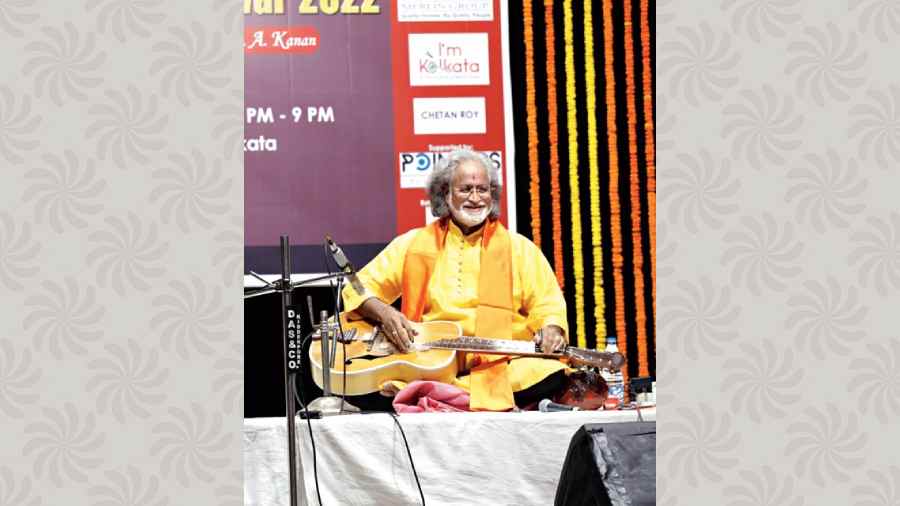
Suromurchhana US and Suromurchhana Kolkata, an outfit that was the vision of Vidushi Malabika Kanan, paid tribute to A.T. Kanan on his 101-st birth anniversary in a befitting way with a cultural evening at Uttam Mancha. Pandit Vishwa Mohan Bhatt presented an engrossing performance with tabla maestro Bickram Ghosh. The Mohan veena virtuoso played Raga Vishwa Ranjani followed by a dhun from his Grammy award-winning album. Some of the other artistes performing that evening were Debopam Goswami, Abhirup Roy, Anirban Chakrabarty, Anjan Saha, Dhananjay Hegde, Subhajyoti Guha and Somenath Roy.


